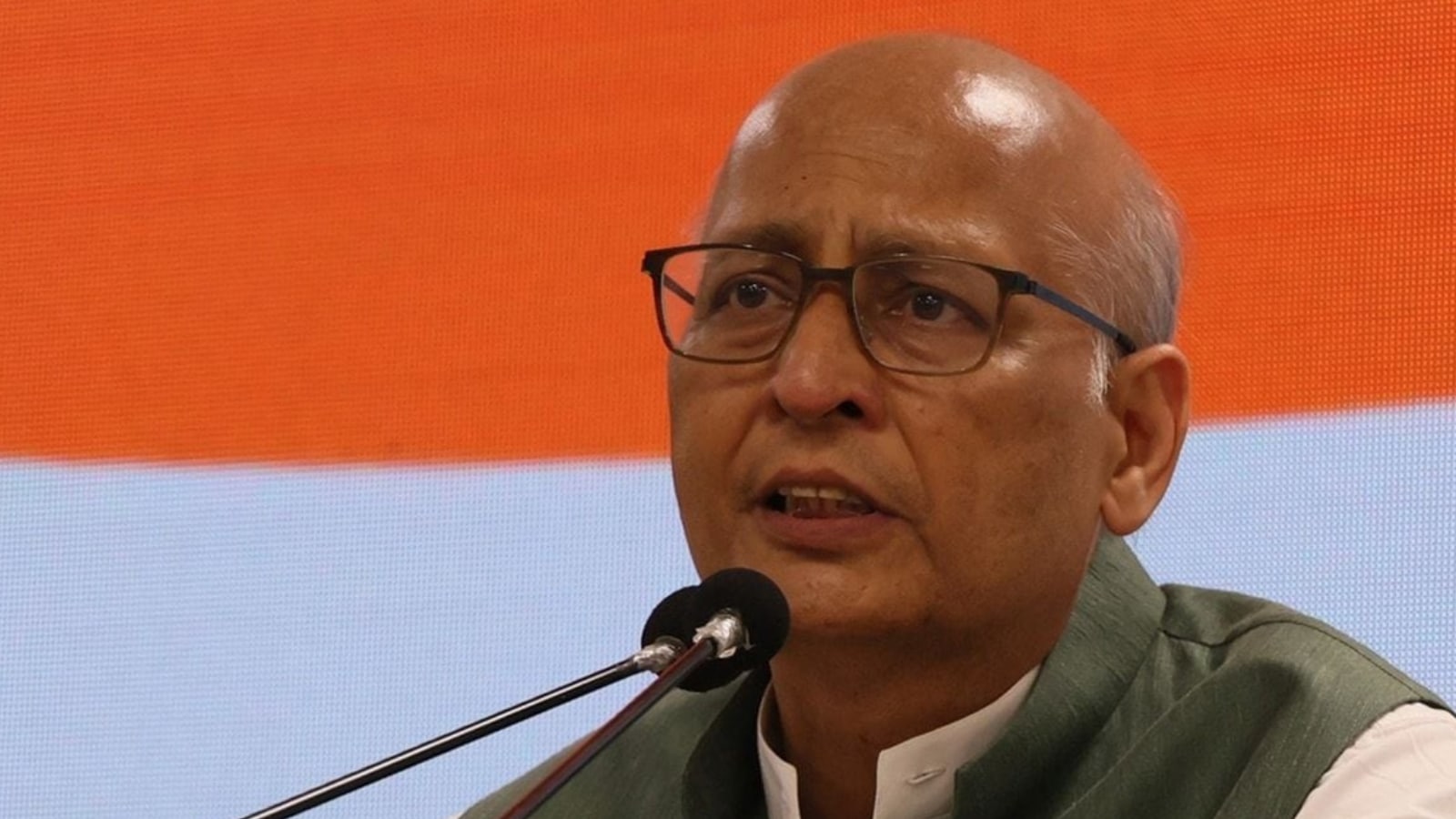 |
|
Abhishek Singhvi, a prominent Congress Rajya Sabha MP and senior lawyer, has voiced strong objections to the recently introduced bills in the Lok Sabha that propose provisions for the removal of the Prime Minister, Chief Ministers, and ministers if they are arrested on serious criminal charges. Singhvi, who has previously headed Parliamentary Committees of Law, Home, and Commerce, argues that these bills are deeply flawed and pose a significant threat to democratic principles. His primary concern revolves around the reliance on an 'Executive act,' specifically arrest, as the trigger for such consequential actions. He contends that this mechanism is inherently uncertain and arbitrary, effectively allowing the executive branch to override the will of the people as expressed through elections. The absence of any legislative determination regarding the validity or justification of the arrest, he argues, leaves the process vulnerable to the whims and caprices of executive authorities and biased agencies, opening the door to politically motivated actions. This, Singhvi warns, could have disastrous repercussions for the stability of democratically elected governments, particularly those in the opposition. He highlights the lack of synchronization between this proposed enactment and existing legal frameworks, such as the Representation of the People Act, which already outlines the criteria for disqualifying elected representatives. The Representation of the People Act emphasizes conviction, a process involving judicial adjudication, as the standard for disqualification. In contrast, the proposed bills would allow a mere arrest, potentially influenced by a biased police officer acting under political instructions, to trigger severe consequences for elected officials. This discrepancy, Singhvi asserts, undermines the established legal processes and creates a system where political opponents can be easily targeted and destabilized.
Singhvi anticipates arguments suggesting the legislation would apply equally to all, regardless of political affiliation. However, he refutes this notion, asserting that the bills are inherently biased and one-sided, even in their conceptual design. He expresses skepticism that law enforcement agencies, like the CBI or Enforcement Directorate, would act in a similar manner when it comes to ministers or the Prime Minister from the ruling party. The inherent power imbalance and the potential for abuse, he suggests, make the legislation a tool for political manipulation. He views the bills as a deliberate attempt to destabilize elected governments, particularly those of the opposition, through the simple act of arrest. Without any determination of guilt, framing of charges, or even filing a chargesheet, an entire government could be thrown into chaos, effectively overturning the mandate of the electorate. He further contends that the legislation could encourage defections, providing an additional tool for political maneuvering. Singhvi points to past instances where governments have been made and unmade by the BJP in various states, highlighting the existing vulnerabilities in the political system. He believes that these bills would exacerbate these vulnerabilities, creating a dangerously potent instrument for political destabilization.
Addressing the argument that a 30-day detention period is a reasonable threshold for removal, Singhvi finds the timeframe to be 'ridiculously low' and lacking any adjudicatory process. He emphasizes that the mere arrest of a minister, regardless of its legality or validity, could trigger significant consequences. Even if the individual is later released and the arrest is deemed unlawful, the damage caused by the destabilization and chaos would already be done. He predicts that the bills will face significant legal challenges and will likely be struck down as unconstitutional, violating several fundamental Articles of the Constitution, including Articles 14, 19, and 21. He characterizes the proposed legislation as a 'mindless law conceived in haste and delivered with ulterior motives,' expressing hope that it will either be rejected or successfully challenged in court. Singhvi emphasizes that the bills violate the basic structure of the Constitution and the principles of federalism. He argues that they undermine the mandate of the people by empowering the executive branch to overrule electoral outcomes through arrests. Furthermore, he believes they will disproportionately target opposition ministers and Chief Ministers, disrupting the balance of power between the central government and the states. Singhvi dismisses the notion that the bills could be used to arrest the Prime Minister, calling it insulting to the intelligence of the people and a mere attempt to create a facade of equality and non-discrimination. Finally, he fully supports Arvind Kejriwal's decision to run the Delhi government from jail, arguing that the bills turn the presumption of innocence on its head. He asserts that a 30-day arrest is not evidence of guilt and that the police should not have the power to remove an elected official from power if their party and the people they represent still support them. He summarizes the legislation as granting a police constable the power to alter governments, but only those of the opposition.
Source: ‘A constable now can have power to change govts, and always of Opposition’: Abhishek Singhvi
